Kingston XS1000
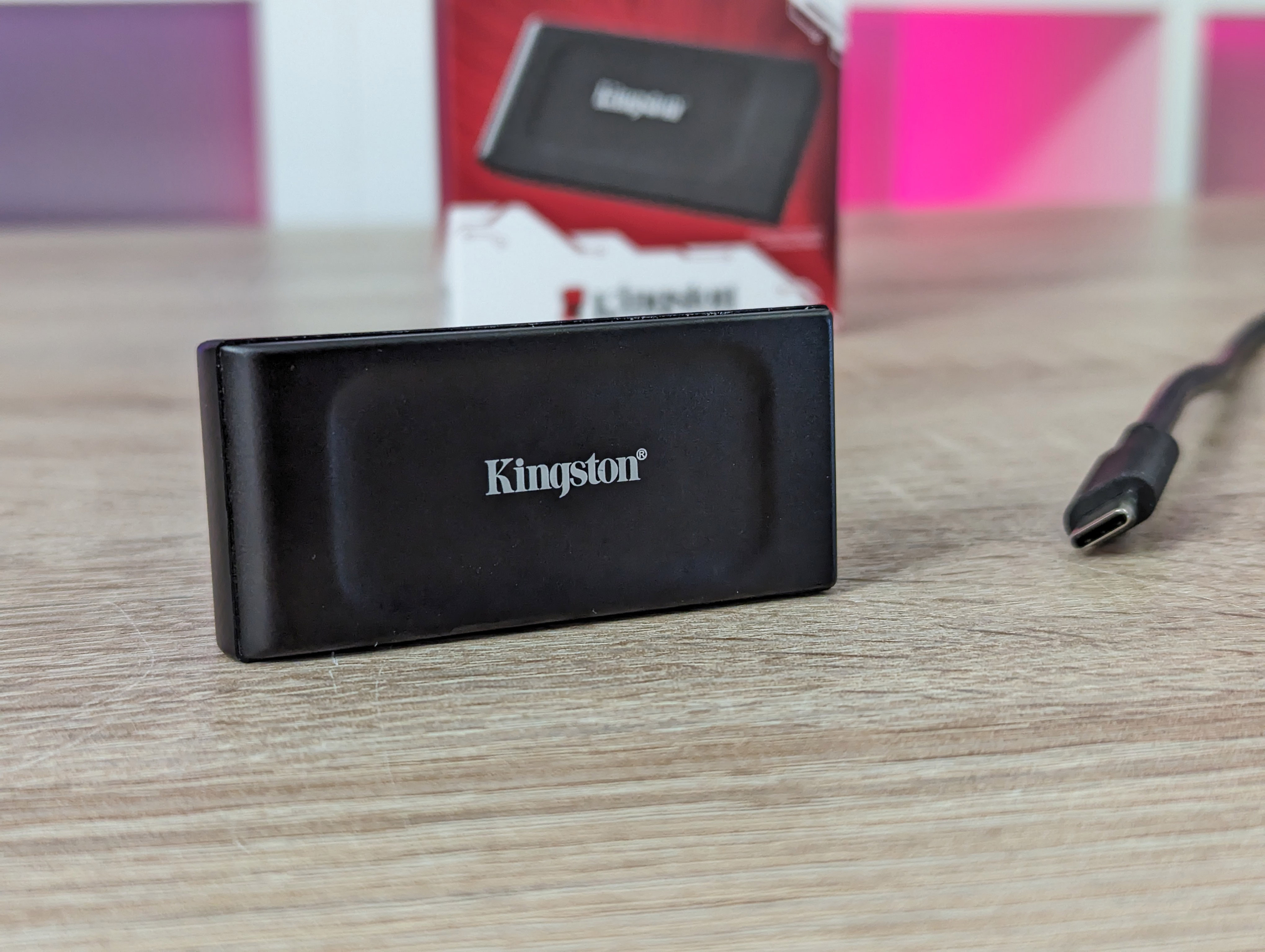
Specifications
- Compact, pocket-sized form factor
- Interface: USB 3.2 Gen 2
- USB Type C
- Speeds up to 1050MB/s with USB 3.2 Gen 2
- Increased storage up to 2 TB
We got the XS1000 for testing quite a while before the official launch, and it didn't come with very many specifications. Centrally, however, it is an SSD with a USB 3.2 Gen 2 interface, with promised read speeds of up to 1050 MB/s
A tour around the Kingston XS1000
Kingston wasn't wrong when they said the XS1000 was a compact device. The little black plastic and aluminum box comes in at just under 30 grams, or 48 grams with the included cable. The size is limited to 70x32x13mm, so it is to that extent an external SSD in pocket format.
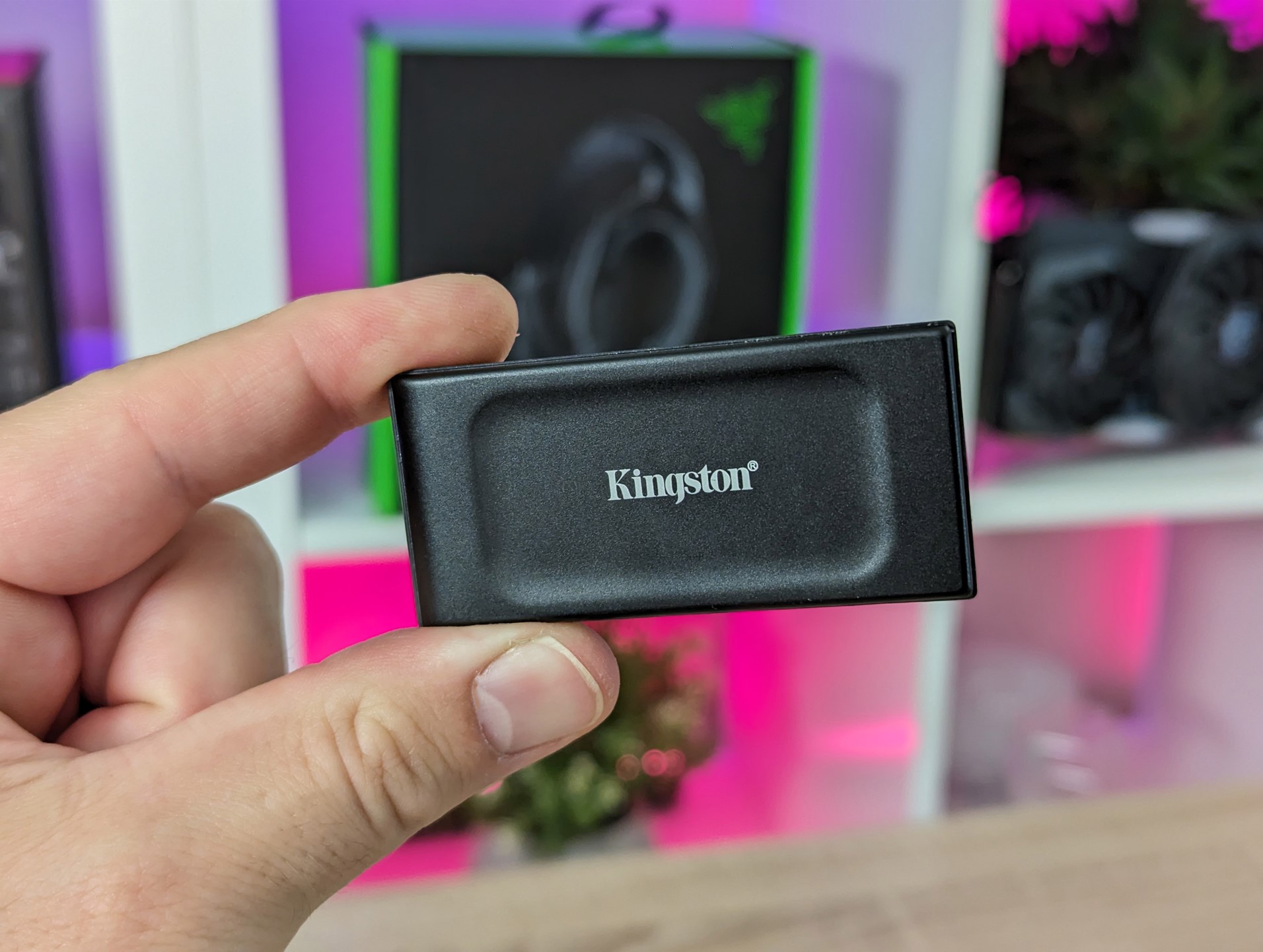
Despite the small form factor and weight, our test model comes with 2 TB of storage, on a USB 3.2 Gen 2 interface.
It is connected via the USB connector at one end of the device. Here we also find a small LED diode for status light.
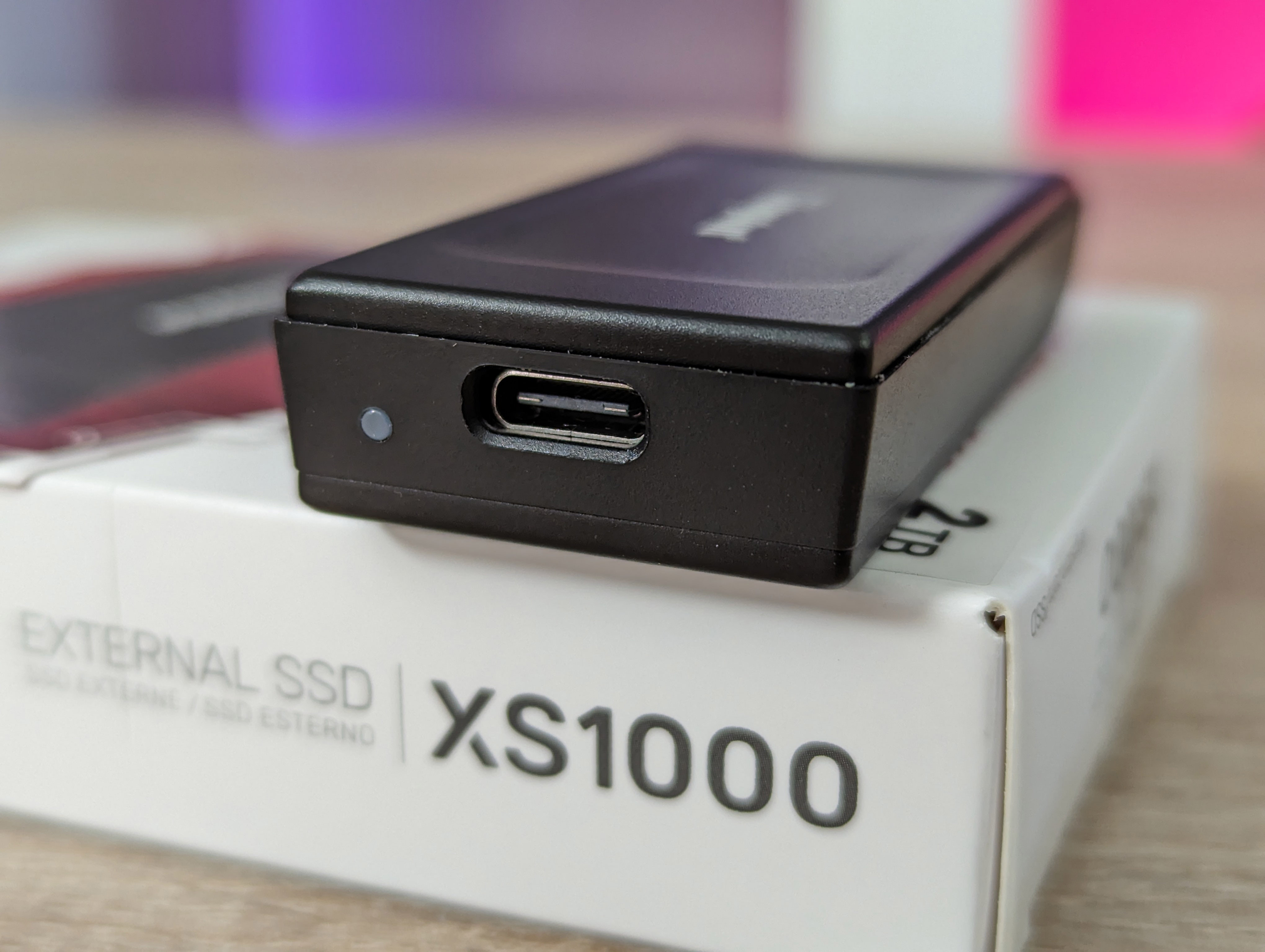
A USB C to USB A cable is included in the package, but otherwise no accessories are included.
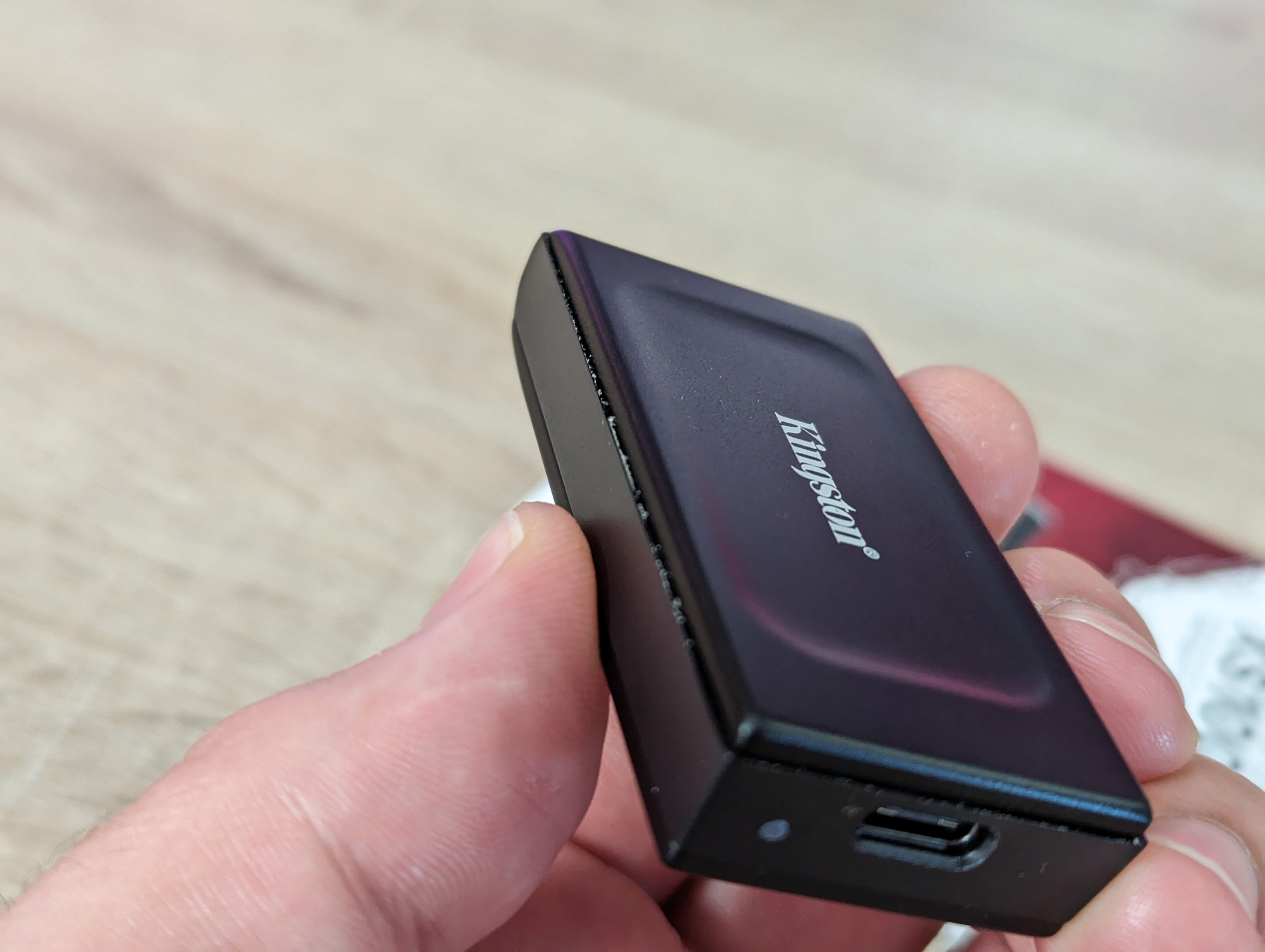
The Kingston XS1000 feels solid and the materials are generally good. The small plastic edge in the middle sticks out a bit, however, and has a rather sharp edge, which is not so nice. However, this is a minor detail when the device is as small as it is.
The test
The test in this case is easy and straightforward. It is a complete unit with built-in storage, so you don't have to do anything yourself other than take the XS1000 out of the package.
It is not made to be opened by the end user, so that the internal storage can be replaced, as we have for example seen on some of the previous external SSD solutions that we have looked at.
All tests have taken place on our AMD-based test bench with the following hardware:
- Motherboard: ASUS ROG Crosshair X670E Hero
- CPU: AMD Ryzen 9 7900
- RAM: 32 GB Kingston Fury DDR5 @6000 MHz
- PSU: Seasonic Vertex GX-1000
As always, we use CrystalDiskMark for our tests of SSD storage, whether internal or external devices.
In our testing of the XS1000, I saw read speeds of just under 1090MB/s without issue, while write speeds topped out at 1030MB/s.
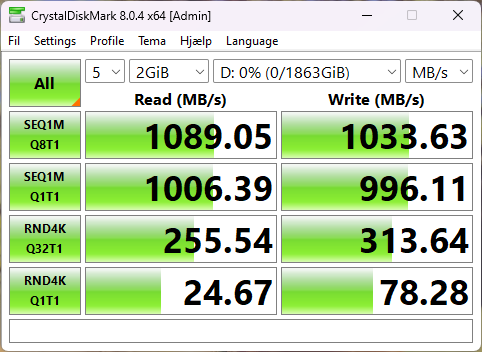
So the read speed with CrystalDiskMark is slightly above the 1050 MB/s that Kingston itself states for the device, which is hard to complain about.
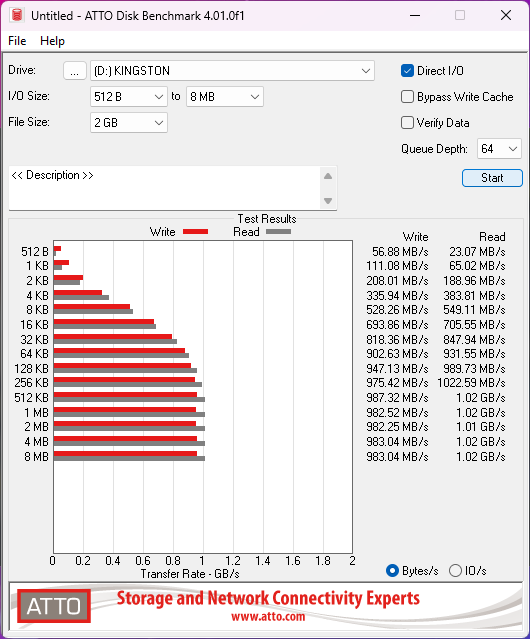
If we take the test in ATTO Benchmark, the result is a reading speed that peaks at 1022 MB/s. So it lands a bit below the stated speed from Kingston itself.
Overall, however, we land close enough that I would say that we generally land very well within the promised speeds. It is very typical in our tests that benchmarks on CrystalDiskMark are slightly above what we see with ATTO.
Price
The price of the Kingston XS1000 in the 2TB variant, which we have visited, lands here at just under 150$, while you can get the 1TB version for around 90$. It is a super solid price if we compare it with the last two external storage solutions, which we have looked at.
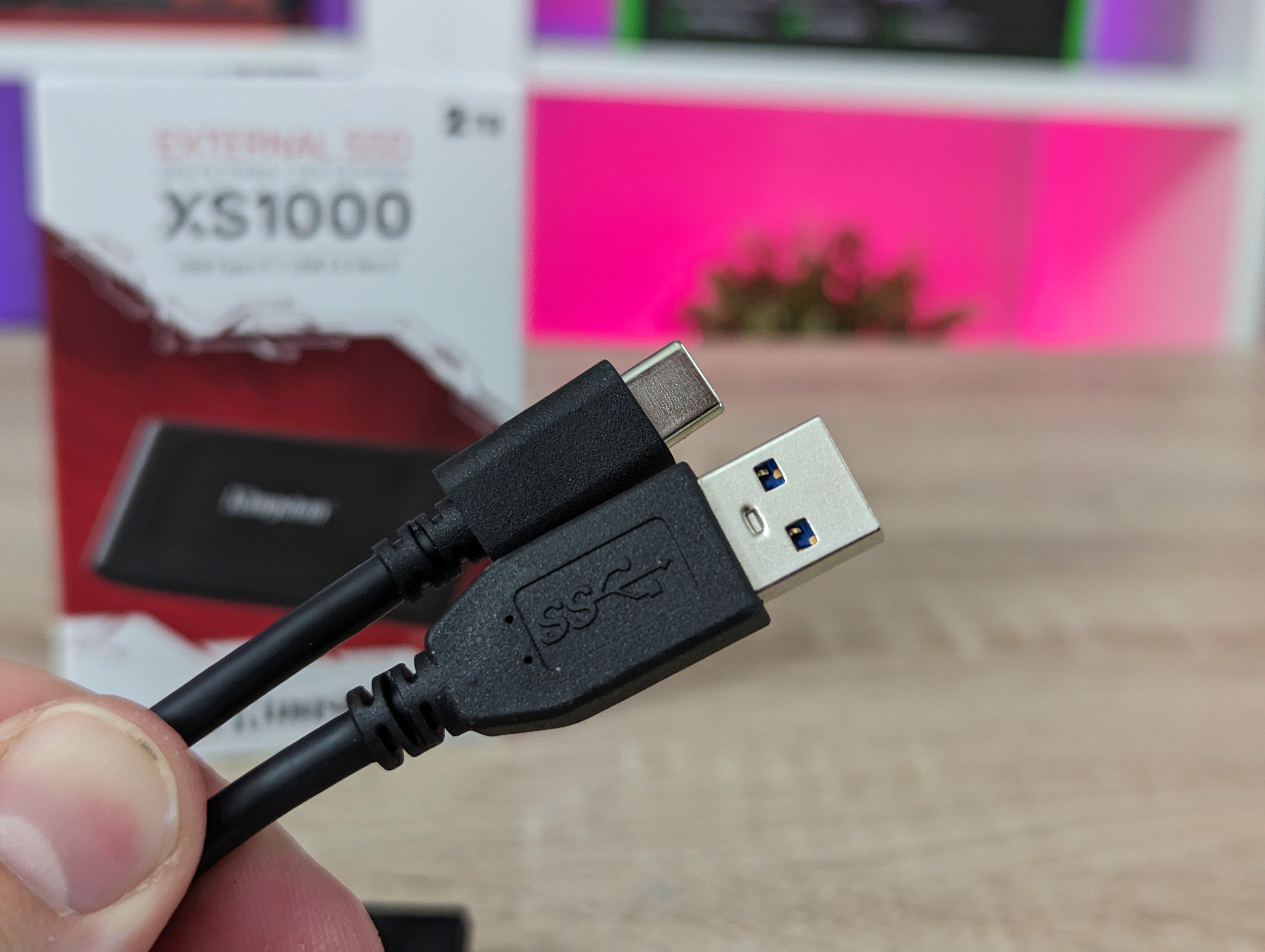
In comparison, you get twice as much storage as with the WD_Black P40 Game Drive, which we also looked at.
Conclusion
With their XS1000, Kingston has made a super compact and fast external storage device. It's easy to carry in your pocket, and our tests land quite reasonably around the promised speed from Kingston itself.
One of the only negatives I can find about the device is the slightly sharp edge on the side, but here we are, as I said, down to small things.
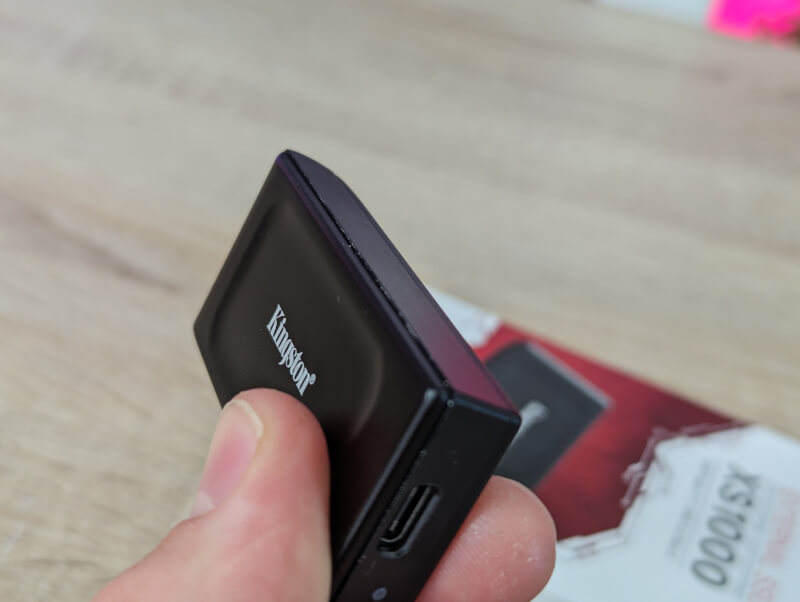
A big advantage, however, is the price, if we compare with the last external storage solutions that we have looked at from Cooler Master, Wester Digital and ASUS. With the Kingston XS1000, we get twice as much storage space for roughly the same price.
It may well be that the cool factor isn't that high on this device, but personally I'd choose anyone for more stock, over bling and lire.
We land with a final score of 9 and a Safe Buy Award, for a solid product at a good price.
Pros:
- Good performance
- Small size
- Sharp price
Cons:
- A slightly sharp edge on the sides


Latest storage
-
24 Janstorage
-
17 Decstorage
KIOXIA Launches EXCERIA PLUS G4 SSD PCIe 5.0
-
25 Novstorage
ADATA SE920 External SSD
-
08 Augstorage
Kioxia Develops SSD with optical interface
-
01 Augstorage
Western Digital's revenue below expectations
-
31 Julstorage
Micron Launches 9th Gen NAND Flash
-
02 Julstorage
SK Hynix Announces SSD for AI PCs
-
04 Junstorage
KIOXIA ready with SSD Heatsink
Most read storage
Latest storage
-
24 Janstorage
Corsair launches EX400U USB4 SSD
-
17 Decstorage
KIOXIA Launches EXCERIA PLUS G4 SSD PCIe 5.0
-
25 Novstorage
ADATA SE920 External SSD
-
08 Augstorage
Kioxia Develops SSD with optical interface
-
01 Augstorage
Western Digital's revenue below expectations
-
31 Julstorage
Micron Launches 9th Gen NAND Flash
-
02 Julstorage
SK Hynix Announces SSD for AI PCs
-
04 Junstorage
KIOXIA ready with SSD Heatsink






